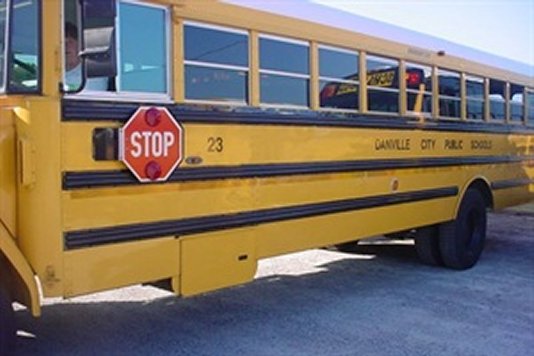
RICHMOND, Va. (AP) — Virginia lawmakers advanced a new version of bipartisan school-reopening legislation Monday, moving to tighten the requirements for in-person instruction that districts must offer in the next school year.
The lawmakers negotiating the bill said the latest version aims to require school districts grappling with the pandemic to offer a full-time, in-person option for students, with limited exceptions. If a school has high levels of coronavirus transmission, it could temporarily revert to virtual learning under the measure, said the lawmakers, a Democrat who is a teacher and a Republican who is a doctor.
The latest version of the bill also includes a new definition of what counts as in-person learning. Setups some districts have turned to involve a non-teacher monitor proctoring online learning in a classroom, but that would not meet the standard.
“Our schools must reopen five days a week, with teachers in the classroom, as soon as possible. The science says they should be open. The data shows they need to be open. And parents are saying they must be open. It’s the right thing to do for our children,” said the bill’s sponsor, GOP Sen. Siobhan Dunnavant, in a statement.
Virginia currently has a patchwork approach to schooling, with some public and private schools offering in-person learning but others offering virtual school only. Northam issued a directive earlier this month that all schools in the state should make in-person instruction available at least as an option by March 15.
State data show schools are increasingly making plans to bring at least some of their students back to the classroom. But many districts are operating in hybrid models, where students aren’t necessarily in class each day of the week.
The bill advanced out of a House committee over the objection of representatives for school boards and school superintendents, who argued that decisions about whether in-person instruction is safe are best made at the local level.
The latest version of the bill “mandates full-time, in-person instruction for all students without regard to whether we can meet the CDC guidelines,” said Stacy Haney, a lobbyist for the Virginia School Boards Association.
Ben Kiser, executive director of the Virginia Association of School Superintendents, said in an interview that his organization opposes the measure for several reasons. Among them, he said, he thinks there will be nuances at the local level that the bill doesn’t address.
James Fedderman, president of the Virginia Education Association, said the teachers’ union supports the latest version of the bill.
Dr. Michael Martin, president of the Virginia chapter of the American Academy of Pediatrics, also spoke in support, saying, “Our children are decompensating, while we debate how to reopen school.”
The bill contains a provision that says that school boards “may” provide fully remote virtual instruction upon a parent or guardian’s request. And like a previous version, it says all teachers and school staff will be offered access to an approved vaccine.
The measure now heads to the full House of Delegates. Kunal Atit, a spokesman for House Speaker Eileen Filler-Corn, said the speaker supports the measure.
Alena Yarmosky, a spokeswoman for Gov. Ralph Northam, said the administration had discussed the bill with Del. Schuyler VanValkenburg, the Democratic lawmaker working with Dunnavant.
“Governor Northam is supportive of the General Assembly’s work to address concerns raised with the legislation as it was originally introduced, and he will review this bill when it comes to his desk,” she said.
In its current form, the bill would not take effect until July. Dunnavant said she hoped Democratic lawmakers would consider adding an emergency clause, so the measure would take effect immediately upon passage. An attempt to do so failed Monday in the committee.